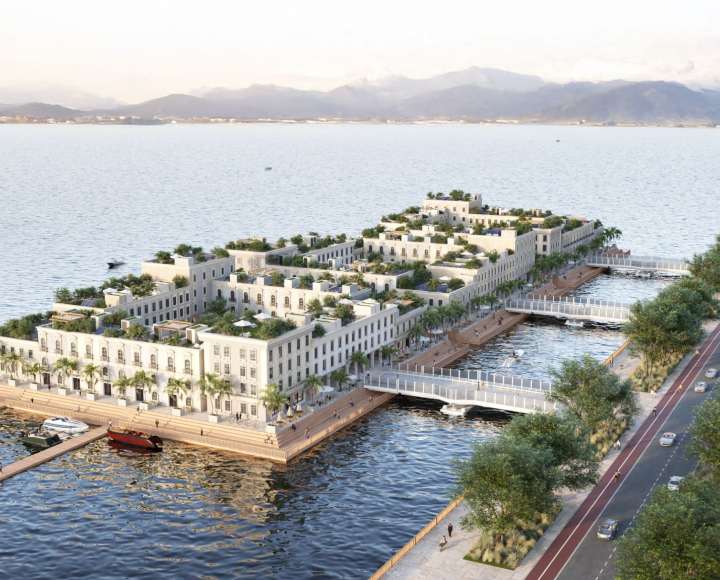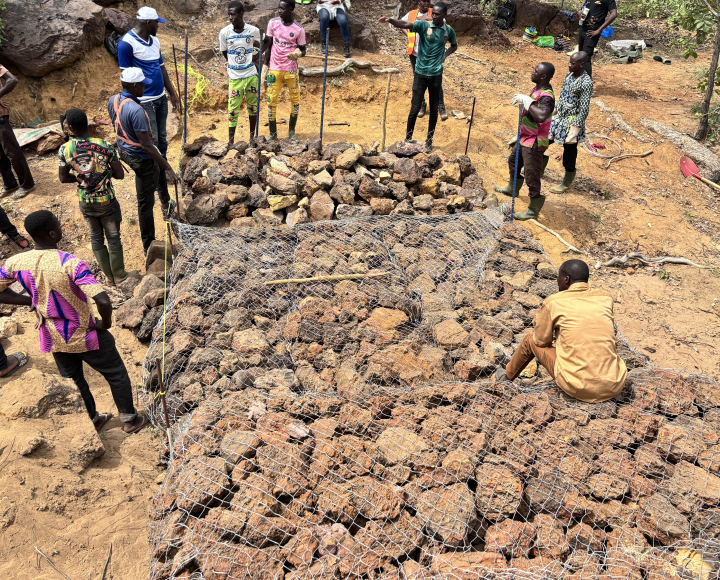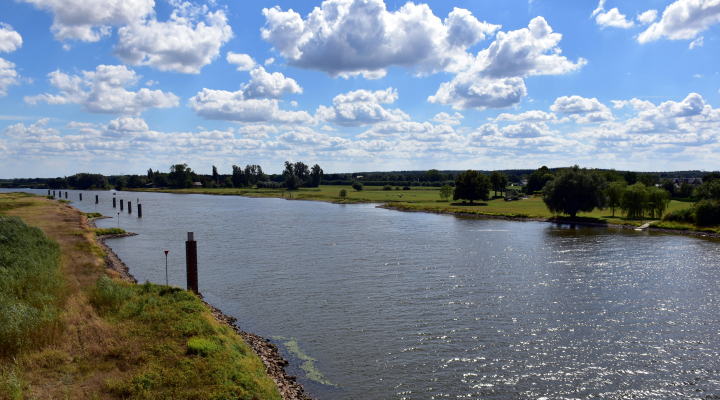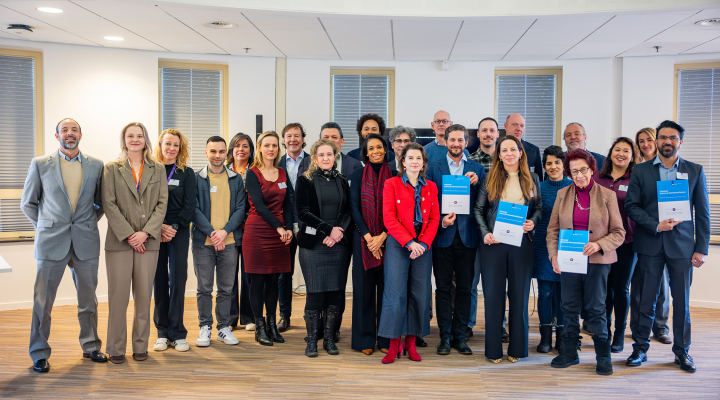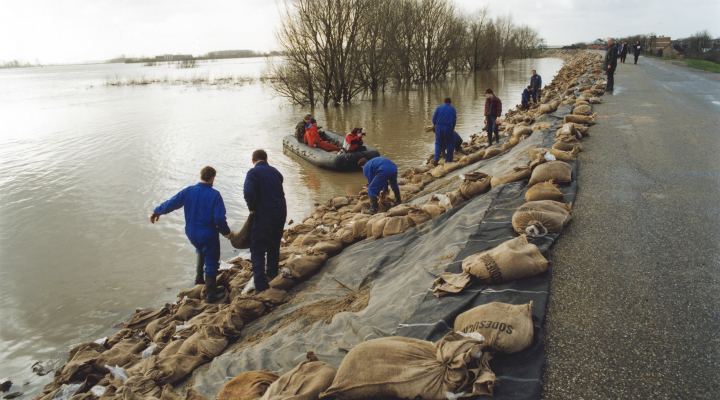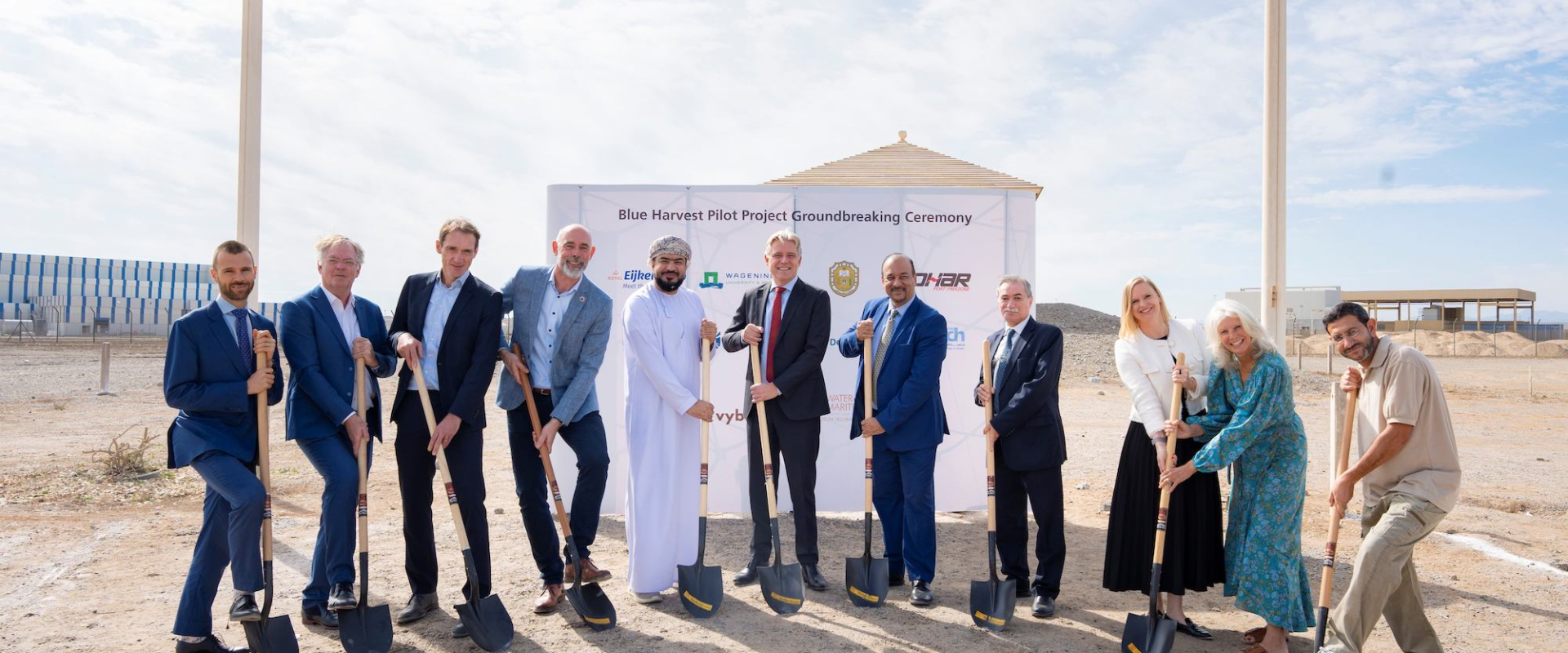
Groundbreaking ceremony marks launch of Blue Harvest pilot project in Oman
The Blue Harvest project, a pioneering initiative promoting the circular economy and sustainability in Oman, has officially commenced with a groundbreaking ceremony at SOHAR Freezone. Dutch companies Dealin Green, Royal Eijkelkamp, Vybrant, and Wageningen University & Research are collaborating with Omani stakeholders to stimulate joint knowledge development. By integrating innovative agricultural techniques with environmentally friendly construction practices, Blue Harvest is setting a benchmark for future sustainable developments in the region.
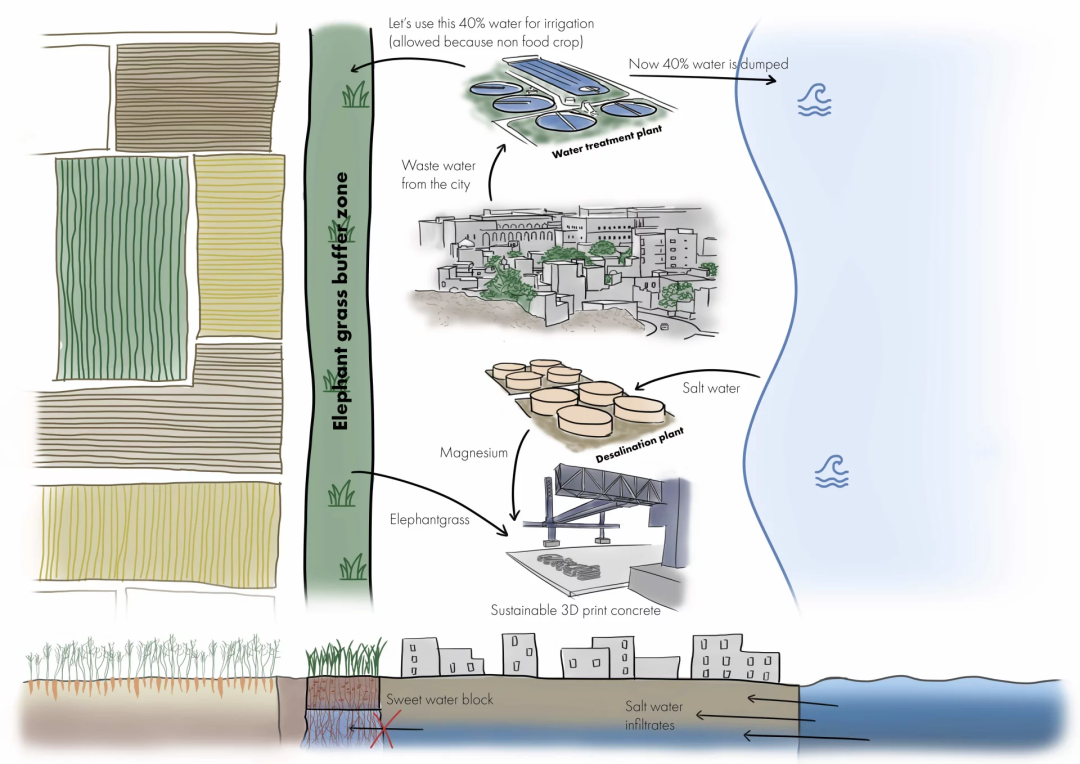
Blue Harvest involves cultivating elephant grass (miscanthus) over 2,000 square metres to produce renewable raw materials through sustainable agricultural practices. The project aims to use miscanthus fibres for 3D printable concrete and bioplastics in indoor construction materials. In doing so, it directly supports Oman Vision 2040’s sustainability goals while working towards climate resilience and the circular economy. Notably, miscanthus cultivation captures 44 tons of CO2 per hectare per year, significantly reducing carbon emissions.
Dutch-Omani collaboration driving innovation
The Blue Harvest project is the outcome of the fruitful collaboration between Omani and Dutch research institutions, companies, and governmental bodies. Wageningen University & Research is leading the initiative, bringing expertise in sustainable agriculture, while local universities such as Sohar University, Sultan Qaboos University, and the German University of Technology are involved through the ELAF Technology Center. Dutch companies such as Vybrant, which created the concept, Dealin Green, which supplies the plants, and Royal Eijkelkamp, which specialises in soil and water monitoring, are key contributors.
The seeds for this initiative were sown during the trade mission organised by the Netherlands Water Partnership to Oman in March 2023. The mission programme facilitated collaboration between Dutch and Omani stakeholders, ultimately leading to the launch of Blue Harvest. The Embassy of the Netherlands in Muscat has been a steadfast supporter of the project from its inception.
Natural approach
Vybrant and WUR conducted a feasibility study on behalf of the Embassy of the Kingdom in the Netherlands in Oman. The overall outcome was so positive, that Vybrant initiated the formation of a consortium during Oman Sustainability Week 2023. It led to led the development of a successful TKI Deltatechnology proposal by Vybrant and WUR, marking a crucial step in the realisation of the Blue Harvest project.
WUR project leader Remco Kranendonk explaining the objective: “We have created ideal conditions to test a nature based solution to salinisation and flooding, combining local expertise and innovative technologies to produce biobased products.”
Alfred Geitenbeek of Royal Eijkelkamp adds that the project presents a unique opportunity to demonstrate a natural approach to crucial water challenges, such as the storage of scarce freshwater, the reduction of soil salinisation, and the improvement of soil structure.
The consortium of local partners in Oman, and Dutch organisations, aims to showcase innovative and effective methods for sustainable water use. As Geitenbeek states “Validating these assumptions with accurate data is essential. Royal Eijkelkamp provides the necessary instrumentation to measure soil moisture levels, salinity values, and temperature, correlated with meteorological data. These insights are integrated into our data portal, enabling researchers to make informed decisions and reliably monitor progress throughout the project.”
SOHAR Freezone's commitment to the circular economy
Speaking at the groundbreaking ceremony, Emile Hoogsteden, CEO of SOHAR Port, emphasized the importance of the initiative: "We are proud to collaborate with a range of local and international partners to bring this ambitious project to life. Blue Harvest represents a major step forward in promoting the circular economy in Oman. This project not only underscores our commitment to sustainability but also contributes to developing innovative solutions to improve soil and water quality while mitigating the impacts of climate change in the region."
Towards a sustainable future: Plant fibres for sustainable building
Blue Harvest reflects broader policy objectives across the Arabian Peninsula, including Oman Vision 2040 and sustainability goals in Saudi Arabia and the United Arab Emirates. The project serves as a demonstrator for sustainable food security, smart water management, and climate resilience. Plants like elephant grass have already undergone successful trials at the Sultan Qaboos University Fieldlab, demonstrating their potential for large-scale applications.
The initiative also explores the use of wastewater by-products (sludge) in circular construction, leveraging plant fibres for 3D printable concrete and bioplastics for sustainable building materials.
Scalable and adaptable model
The collaboration will create greater joint knowledge in cultivating a new fibre crop as a natural solution in addressing the effects of climate change (drought, heat stress, heavy rainfall and salinisation) in a practical demonstration; creating a Nature Based Garden with a practical testing environment for optimising innovation (production system); as well as finding partners interested in application and scaling. It targets partners from the circular bio-based chain, as well as investors and interest from similar projects and potential initiatives in the broader region.
This makes the project not only relevant to the specific situation in the Gulf region, but also valuable as a scalable and adaptable model for other areas facing similar ecological and agricultural challenges.




